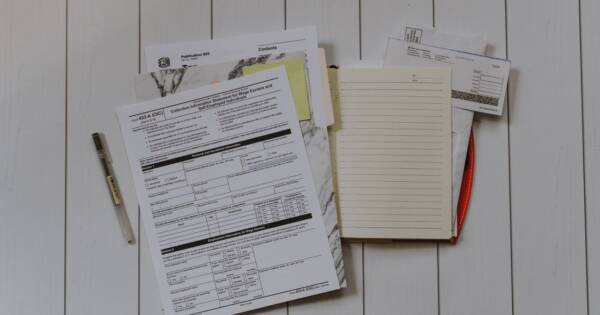Prenuptial agreements, commonly called prenups, are on the rise. In particular, millennials (who have been getting married later than previous generations) are more likely to consider a prenup. Understand what’s important to know about prenuptial agreements, including what they are, what they cover, why people get them and how to start the prenup process.
What Is a Prenup?
With a 62% spike in prenups, engaged couples might be wondering if a prenuptial agreement is the right choice for them. An estimated 39% of couples in the United States still get divorced. For many, that’s reason enough to look into a prenup.
A prenuptial agreement is a written legal contract between two individuals before entering a marriage or civil union. The agreement looks to select and control what legal rights apply to the couple post-marriage and in the event of a death or divorce. This contract can override the default marital laws that apply in the event of a divorce.
Most often, individuals use a prenup to protect their assets in the event of a divorce.
Who Needs a Prenup
There are many misconceptions out there around the concept of prenuptial agreements. You’ll often hear assumptions around prenups only being for couples that aren’t in love or don’t believe the marriage will last. That’s simply not the case. A prenuptial agreement is just smart financial planning that can protect both parties entering the marriage. It’s also best to have these conversations before you get married and when you’re deeply in love with each other. At that moment, you will want what’s best for each other and draft up a fair agreement.
Assets and Property
Your prenup can protect any assets and property that you own. If you acquired these assets and property before meeting your partner, you might feel that you deserve the rights to them. It can clarify the distribution of this personal wealth, assets and property in the case of a divorce or death.
Liabilities
If one partner has significant debt, a prenup can protect the other spouse from these liabilities. It varies for each state, but generally speaking, a creditor cannot hold you liable for debts taken out by your spouse. However, be aware that a creditor can come after any jointly owned assets, such as a home. Or, if you signed on for the debt with your partner.
If you live in one of the nine community property states, unfortunately, your spouse’s liabilities get more complicated even with a prenup agreement.
Consult with an attorney to better understand what kind of protection a prenup will get you from your partner’s debts in your state.
Children Outside the Marriage
If you have children from outside your current relationship or from a previous marriage, you may choose to leave them a portion of your assets. A prenup agreement can clearly outline this to ensure your children get what you want them to. Without the prenup, the majority of assets can automatically go to a surviving spouse.
Note that a prenup cannot determine child support or the legal rights of children. For example, a couple cannot put in their prenuptial agreement who will receive full custody of the children in the case of a divorce.
Prenups Are Personalized
Prenups can be specific to a couple’s needs. Couples may choose to use their prenup to specify future decisions about:
- Who gets to keep the family pet in the event of a divorce
- What happens if a spouse cheats
- What either party cannot discuss or display about the other
- The terms for alimony in the event of a divorce (has to be allowed by the state)
Some prenups have a time provision. For example, the marriage must last a certain time before the assets become shared evenly between the couple.
What Happens When You Don’t Have a Prenup
If you don’t have a prenuptial agreement, your state laws come into effect. In the event of a death or divorce, state laws will determine how assets and property obtained during the marriage (marital/community property) is split. Some states can even choose how property or assets acquired before the marriage are shared.
Checklist for Planning Your Prenuptial Agreement
Start your prenuptial agreement planning with these steps:
- Each party should draw up an honest and complete list of all assets, liabilities and property.
- Have an open and honest discussion around your goals for the prenup.
- Find a lawyer to help you draw up a legal contract.
- Sign the contract and both keep copies.
It is recommended each party hires independent counsel. It may feel silly and like you’re paying double the bills, but it’s important. Using a single lawyer for a prenup is one of the biggest prenuptial agreement mistakes you can make. Your prenup is supposed to protect you. You need an impartial third-party to ensure that you’re not seeing things through rose-colored glasses and are instead making the best decision for yourself.
Postnups
If you’re already married and you regret not getting a prenup, it might not be too late for you. A postnup is exactly the same as a prenuptial agreement but is completed after a couple is legally married.
A postnup can be triggered by a life event, such as:
- One or both individuals receive a significant raise
- Someone starts a new business venture
- One individual gets into debt
- One or both individuals are about to come into an inheritance
Postnups are still legal contracts and, therefore, have to adhere to the state’s regulations. A postnup can be tricky to enforce and are often not viewed as legally binding as a prenup. There have been cases where the court did not honor the details of a postnup. If possible, it’s preferable to get a prenuptial agreement. However, for those who are already married, a postnup can be better than nothing.
You can choose to expedite the prenup process by using a standard prenuptial form and filling it online. Your lawyer will then only have to review the document and make necessary changes, so it adheres to your state’s regulations. This will save you time and money in legal fees.
You can protect your partner and yourself by making the decision to get a prenuptial agreement.






